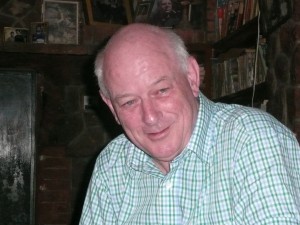About usAn Irish and international team |

Chairman Christy

Treasurer Paul

Laura, general secretary
At Lebanon Trust we are all volunteers and have no paid employees. We work for free. Administration expenses are kept to a minimum and usually paid by the volunteers themselves.
Dubliner Christy Kinsella, upholsterer, formerly a peacekeeper with the United Nations in Lebanon, is our Chairman. Christy brings a lot of experience about Lebanon and about volunteering there, superb painting skills and an unbeatable good humour.
Lebanon Trust’s secretary is Laura Bertolotto. She is neither Irish nor a soldier, feels at home in Lebanon and has a long experience in volunteering. Laura worked as a physicist at the European Organisation for Nuclear Research (CERN) in Geneva, Switzerland, and is now a company executive in Zurich, Switzerland.
Paul Horace is Lebanon Trust’s Treasurer. He has been to Lebanon many times to work as a volunteer, and is very active in public relations and in fundraising. He’ll just as well walk a thousand miles or hop on an executive jet – whatever it takes to help our projects. Paul is a coded welder and lives in Dublin.
Past members:
Noel Conway, from Tralee, served as Adviser from 2013 to January 2025.

Dóchas Code of Conduct on Images & Messages |
Lebanon Trust has signed the Dóchas Code of Conduct on Images & Messages. You can find our listing on the Dóchas website (opens a new tab).
By signing the Code, we have agreed to abide by the following principles in all of our communications:
1. Respect for the dignity of the people concerned in the use of all images and messages.
2. Belief in the equality of all people.
3. Acceptance of the need to promote fairness, solidarity and justice.
Accordingly, we strive to:
– Choose images and related messages based on values of respect, equality, solidarity and justice;
– Truthfully represent any image or depicted situation both in its immediate and in its wider context so as to improve public understanding of the realities and complexities of development;
– Avoid images and messages that potentially stereotype, sensationalise or discriminate against people, situations or places;
– Use images, messages and case studies with the full understanding, participation and permission of the subjects (or subjects’ parents/guardian);
– Ensure those whose situation is being represented have the opportunity to communicate their stories themselves;
– Establish and record whether the subjects wish to be named or identifiable and always act accordingly;
– Conform to the highest standards in relation to human rights and protection of the vulnerable people.
As signatories to the Code, Lebanon Trust is committed to putting meaningful mechanisms in place to ensure that the Code’s principles are implemented throughout all Lebanon Trust’s activities.
We are also open to feedback on our adherence to the Code and we will articulate our commitment to the Code in all public communication.
About the Code
This Code of Conduct was developed by Dóchas’ (the umbrella organisation for Irish NGOs) members and adapted in 2007. It is being monitored by Dóchas members and the Dóchas Secretariat and supplies a framework for sound and fair communications across the NGO sector in Ireland and beyond. The Code is designed to support NGOs when communicating complex development issues and assist with the day-to-day work of the variety of Irish organisations and their partners, working in long-term development, development education and humanitarian relief.
Feedback
For any feedback regarding this topic, please email us at: code[at]lebanontrust[dot]org

